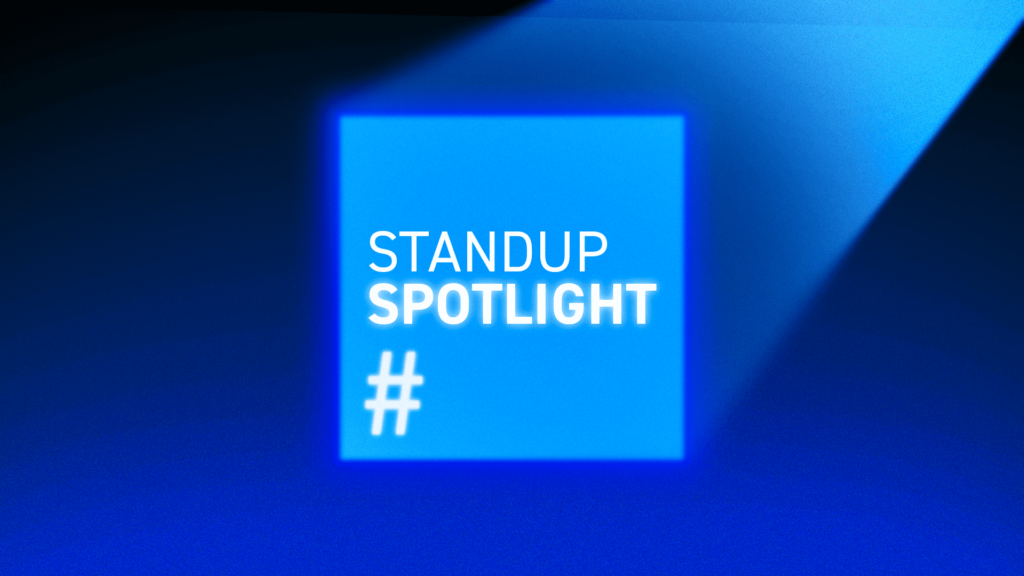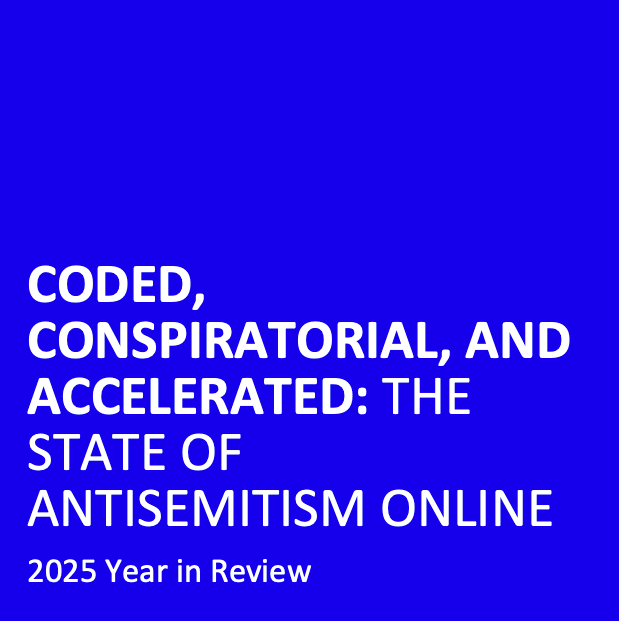Nick Fuentes has recently been at the center of discussion on social media, mentioned more than 378,000 times since his October 27 appearance on Tucker Carlson’s show and amid ongoing debate over how political figures should respond to or distance themselves from him. Fuentes, linked with various white nationalist movements, is widely known for his public expression of antisemitism, Islamophobia, racism, and misogyny. His return to X (formerly Twitter), along with support from several figures on the fringes of mainstream online discourse over the past year, has increased the visibility of his rhetoric. To some audiences, this attention has made his ideas seem more acceptable in mainstream public discourse.

Over the years, Fuentes has been banned or demonetized on nearly every major social media platform for violating hate speech and extremism policies. He was first banned from X and many other platforms in 2021. His X account was briefly reinstated on January 25, 2023, but was banned again the next day after he posted content praising Adolf Hitler and the Unabomber. In May 2024, following an announcement by Elon Musk, Fuentes’s X account was reinstated once more. He now has over 1 million followers on X and continues to post regularly, while also appearing on alternative streaming platforms and making guest appearances on podcasts. (Fuentes remains banned from other major sites, including Meta-owned platforms, Twitch, Reddit, and YouTube).
Mentions of Fuentes’s name online have followed a pattern of sharp spikes tied to major controversies, and gradual normalization within certain digital spaces. His first surge in visibility came in January 2021, following his presence near the Capitol during the January 6 attack. Since that day, his name has been mentioned over 2.5 million times within Command Center data. The two largest spikes came in late 2022 after his dinner with Donald Trump and Kanye West at Mar-a-Lago, and after theories that the murder of Charlie Kirk was carried out by a Fuentes supporter emerged in September 2025. In these moments, the overwhelming majority of online reactions consisted of denunciations of Fuentes.
Mentions of Nick Fuentes in the Context of Antisemitism, Judaism, and Israel, Since 2021

As seen in the above graph, mentions of Fuentes’s name began trending steadily upward towards the end of 2023. While qualitative analysis reveals that most posts referencing him still express criticism or disapproval, Fuentes’s reemergence on X introduced a visible minority of supporters, typically called “Groypers,” amplifying or repeating his talking points, especially in replies to his posts. His appearance on Tucker Carlson’s show, and acceptance by other “less radical” influencers further brought him into mainstream view. His name now circulates in both condemnatory and sympathetic contexts, a shift that suggests his views are becoming more widely accepted online.

The “Groyper” movement, led and defined by Fuentes, blends Christian nationalism, white identity politics, and anti-establishment populism. Emerging in the late 2010s as a revolt against mainstream conservatism, Groypers have sought to push the Republican Party further toward extremism while maintaining the language and symbols of faith, patriotism, and irony. Their online activism began as coordinated trolling campaigns aimed at conservative figures like Ben Shapiro and Charlie Kirk but evolved into a broader ideological identity rooted in opposition to liberalism, immigration, feminism, non-Christian religion, and what they call the “Zionist establishment.” Since 2017, the word Groyper has been mentioned more than 1.41 million times in our data, with 48% of those mentions occurring after Charlie Kirk’s murder on September 10, 2025. Fuentes’s own posts show how the movement frames itself as the “true” populist right, hostile to both elites and multiculturalism. In one post from October 2025, he wrote, “Questions at JD Vance’s TPUSA event… The Groypers have taken over. We run this.”
All of Fuentes’s posts receive hundreds of thousands of views, and many climb into the millions. His followers actively engage with his posts, frequently echoing his talking points and reinforcing his narratives in their replies. The replies amplify his message through repetition and solidarity, further expanding his visibility and the reach of his ideas. His visibility, and acceptance by more mainstream figures like Tucker Carlson, Dave Smith, Russell Brand, and Patrick Bet-David further contributes to normalizing his rhetoric, making his views appear more reasonable to broader audiences.

We looked at every post Fuentes has made on X since his reinstatement, and identified the following themes:
Anti-Jewish Themes:
- Claims of Jewish political control
A recurring feature of Fuentes’s posts is the assertion that Israel or Jewish individuals secretly control the U.S. government. In one post, he claimed that “The second Trump administration is literally just a front for Israel.” Others accuse American leaders of subservience to Israel and its interests, or of prioritizing “Jewish donors” over voters. He routinely invokes conspiratorial imagery of a government “occupied” by foreign influence, framing American politics as manipulated by Jewish elites.
- Accusations of Jewish media and financial domination
Fuentes frequently extends this conspiracy to media and business, alleging that Jewish billionaires control major corporations and entertainment companies. In October 2025, he wrote that “Pro-Israel Jew Larry Ellison is in the process of buying TikTok, Paramount, and Warner Bros,” claiming that “The Jews lost control of the narrative so now they are literally buying more of the media.” This narrative of Jewish economic control mirrors long-standing antisemitic tropes.
- Religious framing and the “Christian vs. Jewish” binary
Fuentes frequently contrasts what he calls “Christ the King” with “Judeo-Christian” culture, portraying Christianity as pure and Jewish identity as corrupting. In a November 2025 post, he described the modern political divide as “America First vs Israel First” and “Christ the King vs ‘Judeo-Christian’.” This framing fuses nationalism and theology to position Jews as adversaries of both God and the nation.
- Holocaust and historical allusions
Fuentes also weaponizes Holocaust references to mock or undermine Jewish suffering. In one post, he suggested that questioning the Holocaust exposes “who rules over you.” In another, he claimed that “Ben Shapiro says it doesn’t matter who kills Kennedy… But if you dare mock or question the Holocaust…”, framing denial and mockery as acts of political courage. These posts mix mockery and conspiracy, using Holocaust references not to discuss history, but to show defiance toward social and moral norms.
Other themes:
- Racialized and anti-Black commentary
Fuentes often frames race relations through anecdotal depictions of white victimhood and Black criminality, such as his widely shared “Scenario A / Scenario B” post about being attacked on public transportation. These messages present racist generalizations as blunt “truths,” contributing to his positioning as a provocateur willing to say what others “won’t.”
- Christian nationalism and religious revivalism
After moments of national violence or political turmoil, Fuentes shifts tone to calls for moral renewal. Following the assassination of Charlie Kirk in 2025, he urged followers to “pray for Charlie Kirk’s soul” and lamented that “Our country needs Christ now more than ever.” Posts like these present Fuentes’s worldview as a divine struggle rather than a political one.
Strategies in Fuentes’s Communication
- Irony and plausible deniability
While Fuentes no longer explicitly references his past admission that “irony gives plausible deniability for our views,” his style continues to reflect it. He often uses memes or sarcasm to soften extremist statements, as in the taunting “Fell for it again 🫵😂,” or offhand insults such as “Such a nasty woman.” This ironic layer allows his content to function simultaneously as entertainment, propaganda, and recruitment.
- Victimhood as power
Fuentes consistently transforms condemnation into emotional capital. When media outlets linked a Groyper follower to the Charlie Kirk assassination, he wrote that “My followers and I are being framed… These people are pure evil.” After an attempted attack on his home in 2024, he posted, “Last night an armed killer made an attempt on my life… I am okay!” One reply to his post read, “Insane Jewish feminist Marla Rose needs to be arrested right now! She was the one who posted Nick’s address all over the internet, placing Nick’s life in danger!” These moments recast vulnerability as proof of righteousness and reinforce a persecuted in-group identity that deepens follower loyalty.
- Inversion and projection
Fuentes often reframes accusations of hate as evidence that his opponents are the real aggressors. Following the Kirk assassination, he declared that “The Left… have no charity, love, or humanity for any of us or our families. We must take power for our own survival. We win or we die.” This rhetorical inversion transforms extremism into self-defense, blurring moral boundaries and justifying aggression as preservation.
Nick Fuentes’s return to X, and his acceptance by well-known public figures, has given new visibility to a worldview built on hate, conspiracy, and religious nationalism. His posts blend open antisemitism with irony, self-victimization, and populist rage, creating a message that feels both transgressive and performative. Each controversy surrounding him reinforces his following, turning condemnation into currency and outrage into reach. Even as most online discussions of Fuentes remain critical, the volume of engagement with his content shows how extremist ideas continue to circulate and evolve within the mainstream.




